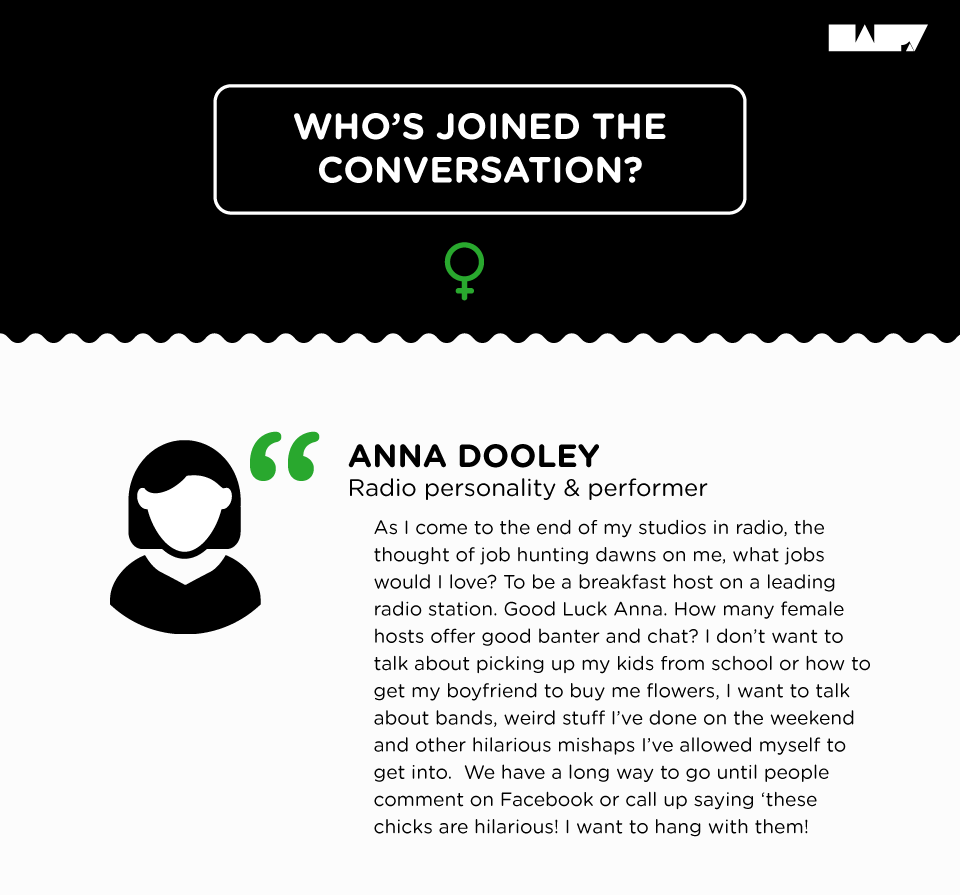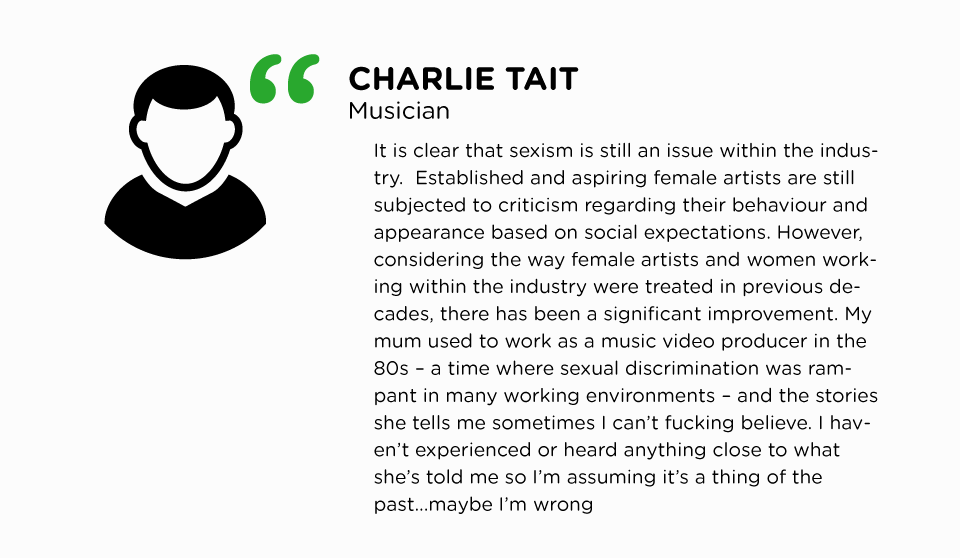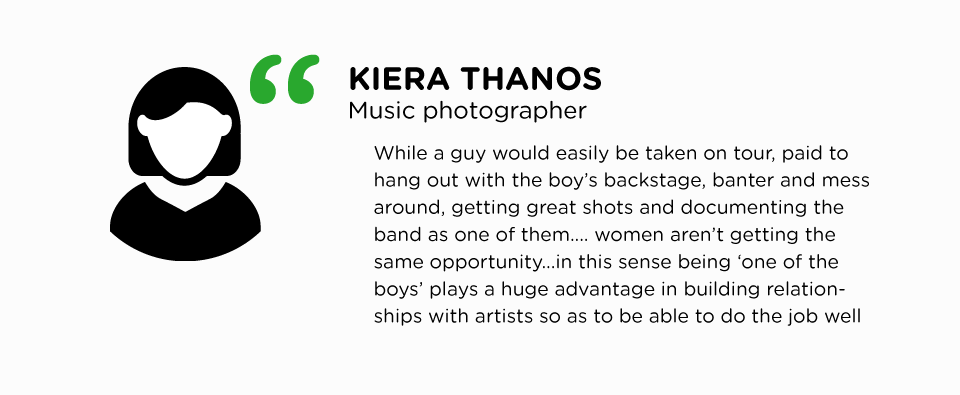Since Happy visited sexism as a construct within the music industry this time last year, one would have hoped that the conversation would have progressed. Alas, like many fights worth fighting, women still remain on the back foot both professionally and socially within the sphere of music.
It’s somewhat ironic that while so many find safety, solace and comfort in creating and performing, the industry itself can often be a very dark, exclusive and unwelcoming for a huge proportion of its makeup… women.

As many would have predicted, the figures do not reflect an equal playing field and sexism in the music industry is still rampant.
While organisations such as the ABC still maintain equal division of responsibility and employment of both men and women, larger corporations and music bodies are still lagging far behind back on the path to transparent equality.
Let’s have a quick look.

Perhaps the most startling statistic (that isn’t pictured above) came from the indie labels which show that of 120 independent labels registered with the Australian Independent Record Labels Association, 80% indicated male managers and only 20% had women in equal leadership positions.
Since it can be argued that indie labels are driving the vehicle of new music within Australia, this shocking disparity only speaks ill for the culture of the music industry heading into the future.
The conversation clearly needs to be changed, the question is will the boys club disband and shift in the direction of an equal playing field, or will it be women who have to work twice as hard for their equal right to shape the industry?

It is also important to remember that while the music industry is representative of musicians primarily, there are sectors which are also vital in keeping this big machine going. Photographers, journalists, managers, promoters, audio techs…. there are so many people making music great.
Why is it that women are consistently pushed to the side for the sake of not being ‘one of the boys’. And why is this phrase even relevant?

This turns to look at the recent release of The First Collection of Criticism by a Living Female Rock Critic by Pitchfork writer and journalism great Jessica Hopper. Hopper argues that if women are solely exposed to an all-male canon of music stemming from the early threads of rock and roll, then their vision is narrowed to conform to the expectations of that landscape.
Male bands, male perspectives and male antics; no room for the feminine or otherwise. While we can say that there are a number of female pillars in music – Debbie Harry, Joan Jett, Janis Joplin, Chrissy Amphlett and Chrissie Hynde – the androgynous, stone cold industry that those women worked so hard to crack is only just starting to crumble, and at a rate that is not in tune with the power and potential of the next generation of women in music.

Incidents like the sexual harassment case raised by American pop artist Ke$ha against her then-producer, Dr. Luke, are popping up too much. Although this case was unsuccessful, it takes one voice and with recording artists including Taylor Swift and Lady Gaga standing firmly behind the message, women in the industry began calling out men and companies on their inappropriate, anti-social and downright backwards attitudes.
Music PR executive Heathcliffe Beru was forced to resign after musician Amber Coffman publicly outed him on Twitter for inappropriate sexual behaviour. With more female voices comes less and less tolerance for sexism in any industry, and as women speak up and stand up so follows greater female leadership, managerial roles and changes to a once rigidly masculine industry.
Second to this falls the clear-over sexualisation of women within music, where their craft gives little if any sexual notions, critics and audiences still manage to attach it wherever they see fit. Sky Ferreira lashes out at critics who penned that her “sex appeal [is] what pop music needs right now” and that she was a “more cherubic Sharon Stone, icy but also sweet, like a freshly licked lollipop”.
It goes without saying that sex sells, but it sells chocolate bars and beers and deodorant brands. When it comes to music, music should sell music and that’s the bottom line, no ifs, buts or maybes. Our female artists are more than their bodies, more than their clothes and more than the men and women that they date. Their voices and messages are important, relevant and worthy of all respect regardless of gender.
These are just a few examples where women within the music industry are becoming less and less dismissive of the weighty imbalances that affect them and are taking charge of the future of their careers, not just for them but for the next generation of female music professionals, and we can only hope to see more in the future.
While you’re here, check out our piece on how to promote your band.


